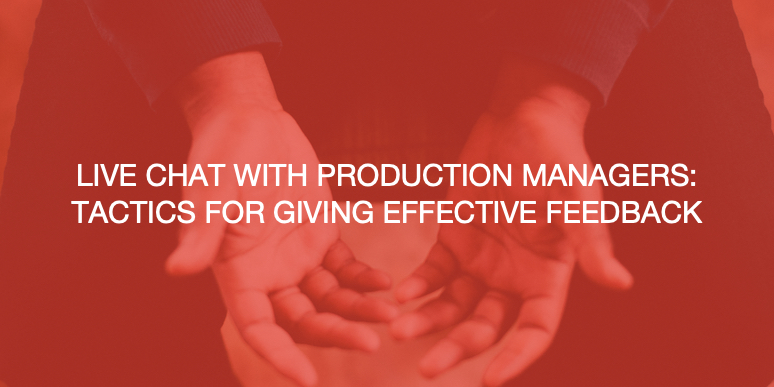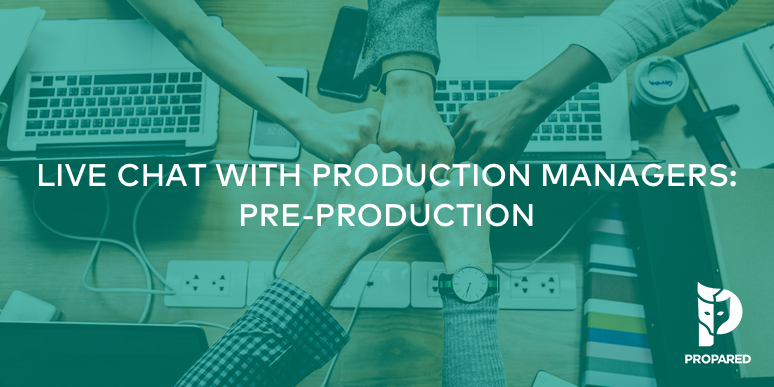
Scheduling one event is complicated. A few at a time? More so. At least one a day? Downright crazy. Welcome to the world of venue management; an immensely challenging position that requires the coordination of logistics for dozens of events at the same time.When you take on this immensely challenging role, you are managing the logistics for dozens of events at the same time. And while that may seen like a perpetual headache, it is actually some of the most challenging, fun, and creative work you can do.
The biggest transition I made early in my career happened when I accepted the position as Lighting Director of Cipriani, 55 Wall Street. As a trained stage manager, I suddenly had to flip my perspective from running a single show to now:
-
Running today’s show
-
Planning its simultaneous load out with the load in of tomorrow’s show
-
Confirming gear and booking staff for next week’s shows
-
Drafting light plots and creating gear orders for the following week’s shows
-
Meeting with clients for the shows after that
All in one day. And it is sink or swim. You either find some ways to improve your efficiency really fast or you move on to another gig. When I was managing a single show at a time, I could afford to have an inefficient process. I had some late nights and occasionally would bang my head against the wall but I got by. And so did many of my colleagues with similar roles. Now faced with a new event every night, that just wasn’t going to cut it anymore.
I looked at my entire process. Where could I find ways to streamline my work? The more I broke it down, the more I realized that in order to succeed, I had to really focus on logistics. What’s happening, when, how, and who’s doing it. I had to think more long-term, anticipating challenges that would arise and plan for them in advance. Over time, I developed these key tenets to live by as a venue manager.
1. A venue is like a car. It requires constant PREVENTATIVE maintenance.
If it’s a good spot, your venue will always be booked. That means everything WILL wear out. It’s just a question of when. From burnt bulbs to faucet handles, from stress on your electrical systems to the thousands of feet that will tread on your floors and carpets. It’s your job to think about this wear and develop plans to combat it. Make a list of expected replacement dates. Estimate them yourself if you are knowledgeable about your materials, or consult with each item’s manufacturer. Create a maintenance schedule and budget for the replacements as well as the labor required. It won’t be perfect but it will be much better than treating everything as a surprise. Set up an inspection checklist to ensure nothing is going bad earlier than you expected. We’ve all had that happen when managing an event. Your goal is not just to fix something when it breaks. Your goal is to PREVENT things from breaking by anticipating their expiration and replacing them before they do.
2. Prepare for the worst. It will happen from time to time.
Even with your best planning and preparation, something may still go wrong. When it does, you need to get the venue back up on its feet quickly. Anticipate as many of those emergencies as you can and document what you’d do in each situation.
-
Plumbing
-
Locks and Security
-
A/V – Sound, Lighting, Video
-
Painting and Handyman Services
Know who your repair and maintenance companies are in advance. When something does inevitably happen, you’ll know who to call.
3. You live and die by your staffing.
Learning how to staff and delegate is all about understanding the needs of your venue and its event calendar. It is not, I repeat, NOT what you think you can or can’t do. Each show needs a point of contact. For example, suppose you work in a large venue with any different shows coming and going. You’re going to have to accept you’re not going to be able to do it all yourself. If your venue is busy, chances are it is humming 18+ hours a day. That’s at least 2 people actively managing in the venue at any given time, one to handle setups and client meetings and another to oversee the shows. Whatever the situation is specific to your venue, you’ll need a process to keep up with everything happening. This way, you clearly set expectations for your team, including authority, management leads, and decision making. And most importantly, you never lose sight of the most important person/people in the room: the client. If you haven’t matched your staffing needs with the needs of your venue, you are in for a world of hurt.
4. Take Some Time to Find Scheduling Tools You’ll Love.
So often we fall back on our calendar and spreadsheet friends to schedule event details. Given the volume of information and the interconnected nature of venue logistics, these tools can be woefully inadequate. When you silo files into separate folders, you don’t have the opportunity to see how each event affects the other. Remember the overlapping load in/load out of two separate shows? If you aren’t managing across these projects, you may miss a detail that seriously impacts one of the clients. Suppose your prior show has scheduled equipment pickups for tomorrow but your new show expects to have the venue for themselves? Ouch.
Your scheduling tools need to be flexible enough to give you multiple views, based on your choice of criteria; loading dock activity, room usage, or even a single team member’s schedule. This is what actually led me to develop Propared as a bespoke event industry solution. For years, I spent countless hours trying to fit my work into other systems not designed for the type of event work I was doing. I watched as my Google calendars overflowed and my Dropbox became endless subfolders of subfolders. So I worked with other cool folks to make a tool that venue and event managers would love. It makes working such complex assignments that much more enjoyable.
5. Your Communication and Documentation Needs to Be Perfect.
The more your clients and vendors know about your venue ahead of time, the fewer problems you’ll have when everyone arrives. Surprises are the death of an event. Eliminate them as much as you can. Provide detailed and accurate information for anyone who will be working in your venue. Think about the most frequently asked questions and the things that each party will likely want to know. Create packets of information and drawings (to scale!) that can be distributed to anyone who needs them. Here are a few examples.
-
Recommended setup areas
-
location of power
-
weight restrictions
-
dimensions and load in pathways
-
truck limitations.
You may discuss all of this during the site visit but give your contacts a comprehensive set of facts with which they can work. It will drastically increase the odds that they remember it and it covers your you-know-what in case there’s ever an issue.
Take managing an event and turbocharge it. Then take the brakes off. Now you’ve got a sense of the world of venue management. It is fun, complex, and exhilarating work. Just remember to plan ahead and anticipate the challenges you’ll face and you’ll find success whatever size venue you manage. Happy project-ing!
Do you manage a venue? What tips can you provide that can help aspiring event professionals interested in this work? Share them in the comments below!



